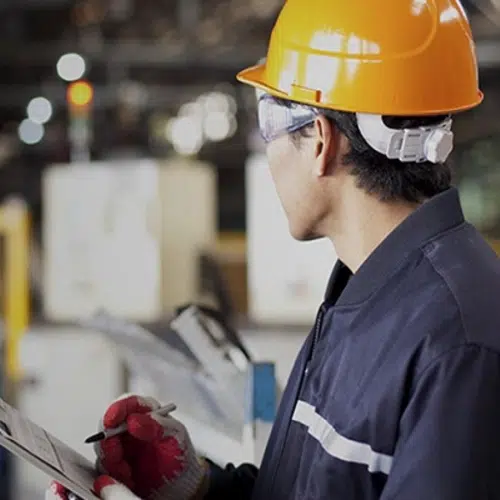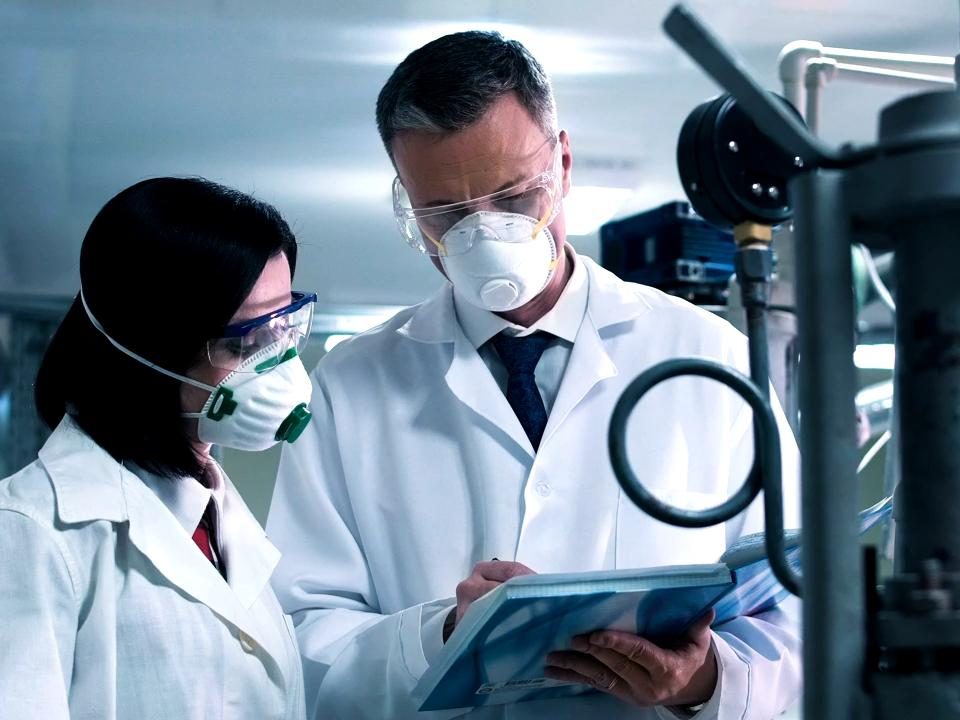SIL & LOPA Implementation for Pharma & Chemical Industries in Vadodara – Avoid Legal Risks

HAZOP Study & Process Safety Management in Surat – Why Every Chemical Plant Needs It in 2025
November 24, 2025
QRA & Fire Safety Audit Services in Bharuch & Halol – Ensuring Compliance with Gujarat Factory Rules
November 27, 2025Pharma and chemical plants in Vadodara operate in a high-stakes environment where small failures can lead to major financial, environmental and legal consequences. With global regulatory pressure increasing and Indian authorities tightening compliance norms, industries in Vadodara must strengthen their safety integrity levels (SIL) and Layer of Protection Analysis (LOPA) frameworks. These systems are no longer optional—they are essential for avoiding penalties, lawsuits and operational shutdowns. This blog explains why SIL and LOPA matter, how they protect your facility, and why experienced Safety Consultant Vadodara teams are becoming indispensable for industries aiming to stay compliant and risk-free.
Why SIL and LOPA Are Critical for Vadodara’s Industrial Sector
Vadodara hosts one of India’s most diverse industrial belts, with major players in pharmaceuticals, bulk chemicals, polymers, fertilizers and specialty chemicals. These industries work with hazardous substances, high-pressure systems, flammable materials and complex chemical reactions that require precise monitoring. Safety systems serve two major purposes. First, they ensure safe working conditions for employees. Second, they serve as formal proof of compliance in case of audits, inspections or legal scrutiny. Companies that fail to implement structured Industrial Risk Management often face shutdown notices, heavy fines and even criminal liability under Indian industrial safety laws. Authorities increasingly expect companies to evaluate risks using recognized global standards like IEC 61508/61511 for SIL and CCPS guidelines for LOPA. This is why the demand for SIL Assessment Vadodara experts has grown significantly. Organizations are now realizing that safety documentation, system reliability and proper functional assessments can protect them from catastrophic losses.
Understanding SIL (Safety Integrity Level) in Simple Terms
SIL defines how reliable your safety instrumented system (SIS) must be to prevent a hazardous event. It states the probability of failure on demand (PFD) of critical safety equipment. There are four SIL levels, from SIL 1 (basic reliability) to SIL 4 (highest reliability). In practical terms, SIL ensures that your plant’s most critical safety barriers function correctly when they’re needed most. Examples include automated shutdown systems, pressure relief systems, gas leak detection shutdowns and reactor temperature protection. For pharma and chemical industries in Vadodara, SIL compliance is crucial because processes involve temperature-sensitive reactions, solvent handling, toxic gases and exothermic reactions. The challenge most companies face is determining which equipment needs what SIL level and ensuring the system meets that reliability requirement. This is where expert Safety Consultant Vadodara services add real value.
What LOPA Adds to the Safety Framework
LOPA (Layer of Protection Analysis) identifies how many protection layers exist between a hazard and a catastrophe. It looks at causes, frequencies, safeguards and consequences to determine how much risk remains. LOPA is essential because many companies assume their safety barriers are enough, but assumptions have no legal validity. Authorities increasingly require proof through structured LOPA studies that demonstrate how a plant has justified its risk-reduction decisions. LOPA Study Vadodara services help manufacturers quantify risks using credible, repeatable, internationally accepted methods. For example, an operator might think that alarms plus operator action count as a strong safeguard. But LOPA may reveal that operator response time is unreliable under stress, meaning an independent safety instrumented system is actually required. This objective clarity prevents accidents that could lead to regulatory action under the Factories Act or environmental laws.
Key Legal and Compliance Pressures on Vadodara Industries
Safety rules are tightening globally, and India is aligning with international norms, especially in hazardous industries. For Vadodara businesses, compliance expectations now include documented risk analysis, proof of SIS reliability, and evidence of periodic audits. Some of the key legal pressures include:
• Increased scrutiny from the Directorate of Industrial Safety and Health (DISH).
• Higher liability under the Factories Act for chemical industries.
• Environmental penalties due to accidental releases.
• Insurance denial or increased premiums for plants without documented safety frameworks.
• Civil and criminal cases in the event of worker injury or death.
Many companies learn the hard way that lack of documented SIL and LOPA can be interpreted as negligence. Robust Industrial Risk Management is therefore not only good engineering practice but a powerful legal shield.
Why Pharma and Chemical Companies in Vadodara Face Higher Safety Risks
These industries are risk-intensive because they involve reactive chemicals, solvent vapors, heat-sensitive drugs, catalysts and batch processes that can go out of control quickly. Batch reactions in pharma plants are particularly unpredictable because each batch may vary in temperature or reaction rate. Without proper SIL and LOPA implementation, operators may miss early signs of runaway reactions or pressure buildup. Common high-risk scenarios include reactor temperature excursion, solvent flash fires, storage tank over-pressurization, toxic gas leaks, equipment failures, and electrical faults in hazardous zones. The combination of flammable materials and densely packed production areas increases the consequences of failures. This makes proper SIL Assessment Vadodara implementation non-negotiable for responsible companies.
How a SIL Assessment Works: Step-By-Step
A structured SIL assessment typically includes:
- Identification of hazardous events using techniques like FMEA, PHA, or a linked Hazop Study.
- Determining the likelihood and consequences of each event.
- Evaluating existing layers of protection.
- Determining the required SIL level using risk graphs, LOPA or fault tree analysis.
- Verifying that the design meets the required SIL.
- Preparing documented proof of compliance.
For Vadodara industries, a documented SIL assessment can serve as formal evidence during inspections or insurance audits. It also helps engineering teams design safer plants or upgrade outdated systems that no longer meet today’s reliability expectations.
How LOPA Strengthens SIL Implementation
LOPA acts as a filter that strips away assumptions and emotional judgments. It quantifies risks in numbers, not opinions. It determines whether an alarm with operator action can be counted as a safeguard, whether a pressure relief valve is independent enough to be a strong protection layer, and whether additional safety layers are required to meet the tolerable risk. LOPA Study Vadodara teams often uncover hidden risks like reliance on human response time, inadequate separation between safeguards, outdated instrumentation and poor documentation of proof tests. By combining SIL and LOPA, companies get a solid, verifiable and defensible safety architecture.
Role of Professional Safety Consultants in Vadodara
Many companies attempt internal assessments but end up with incomplete or legally weak documentation. A certified Safety Consultant Vadodara brings experience across multiple industries, internationally accepted methodologies and a neutral perspective. Consultants ensure your assessments stand up to regulatory scrutiny. Good consultants also provide training so that internal teams can maintain compliance over time. This knowledge transfer is essential because safety systems only work when teams understand them.
Supporting Safety Services That Strengthen SIL & LOPA Compliance
Along with SIL and LOPA, several other assessments help build a fully compliant safety system. These include:
• Fire safety checks, including one Fire Audit to evaluate fire detection and suppression readiness
• Plant-wide inspection through a Safety Audit to identify gaps in workplace safety
• Chemical and operational risk controls through Process Safety Management reviews
These services automatically strengthen SIL and LOPA outcomes because they address structural weaknesses, outdated equipment and uncontrolled hazards that could compromise safety systems.
Common Mistakes Vadodara Plants Make in SIL & LOPA Implementation
Even well-intentioned industrial teams often repeat avoidable mistakes such as relying solely on generic risk assessments without quantification, assuming operators always respond perfectly to alarms, counting non-independent safeguards as separate protection layers, skipping periodic testing of safety instrumented functions, and failing to update documents after plant modifications. These errors weaken legal defensibility and increase actual risk. The goal of Industrial Risk Management is not to simply pass an audit; it is to protect the business from catastrophic incidents.
How SIL & LOPA Reduce Legal and Financial Risks
SIL and LOPA implementation can save companies millions. They reduce unplanned downtime, equipment damage, fire and explosion risks, worker claims and environmental impact penalties. They also protect companies from legal liabilities by proving due diligence, providing clear safety documentation and demonstrating compliance with recognized international standards. When incidents occur, the authorities immediately check whether risk studies were performed, updated and followed. Proper SIL and LOPA frameworks allow you to confidently prove that your company took all required steps. This is often the difference between a manageable situation and a legal crisis.
The Future of Industrial Safety in Vadodara
As ESG norms, corporate governance expectations and global supply chain requirements rise, clients and international partners expect audited, documented safety frameworks. Pharma export companies especially face stricter international scrutiny. SIL, LOPA and structured Industrial Risk Management are becoming central requirements for partnership approvals, international certifications and investor confidence. Vadodara industries that embrace these frameworks early will gain a competitive advantage.
Conclusion
SIL and LOPA assessments are more than technical exercises; they are crucial legal and operational safeguards for pharma and chemical industries in Vadodara. With increasing regulatory pressure, complex processes and high-risk operations, companies can no longer depend on outdated safety practices. By investing in expert SIL Assessment Vadodara services, structured LOPA studies, and supporting audits, industries can protect their people, assets and reputation while avoiding unnecessary legal risks. Proper implementation ensures safer operations, stronger compliance and greater long-term stability for Vadodara’s industrial ecosystem.




